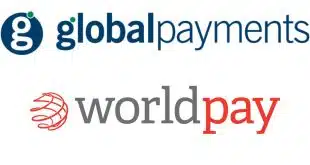n
n
Competition from Square? No problem, according to VeriFone Systems Inc. chief executive Douglas G. Bergeron.
n
“We’ve had competitors for 30 years,” Bergeron said in response to an analyst’s inquiry about how he sees the competitive risk to VeriFone, the leading U.S.-based point-of-sale terminal maker, from Square Inc., the headline-grabbing mobile-payments merchant processor headed by Twitter co-founder Jack Dorsey. “We’ve had lots of competitors that we’ve taken care of … we will have competitors for the next 20 years.” He added that if San Jose, Calif.-based VeriFone didn’t consistently adopt new technologies and listen to its customers, it would “be yesterday’s lunch … we’re as innovative as anyone in the Silicon Valley.”
n
But Bergeron himself brought up the subject of Square earlier, during his opening remarks in a conference call to discuss VeriFone’s earnings for the first quarter of fiscal 2012 ended Jan. 31. Bergeron noted that there had been news stories and “a lot of hype of about a new challenger” in the taxi-payment business doing a test in 30 New York City cabs. That was a reference to Square’s plan to install Web-streaming, payment-capable iPads that won approval from the city’s Taxi and Limousine Commission March 1. In a nod to VeriFone and Creative Mobile Technologies LLC, which collectively have payment and media-displaying equipment in more than 13,000 New York cabs under contracts that expire in about a year, the commission also allowed them to test tablet computers in 30 cabs each.
n
“As a reminder, VeriFone is now in 33 cities with over 17,000 taxi-payment and media systems in operation,” Bergeron said. The company is under contract to equip more than 8,500 so-called Black cabs in London with payment and media devices and recently won its first such contract in Canada, for 400 devices in Toronto cabs. Regarding Square’s New York test, Bergeron told the analyst that, “I didn’t lose any sleep over this.”
n
The taxi systems symbolize VeriFone’s push in recent years into software-based payment, data-security, and marketing services that generate steadier revenues than the more volatile POS terminal business. Boosted by acquisitions, VeriFone posted net revenues of $419.5 million in the first quarter, up 48% from $283.8 million a year earlier. Revenues from services jumped 84% to $106.9 million while so-called system solutions grew 39% to $312.6 million. Services accounted for 25% of net revenues versus 20% in fiscal 2011’s first quarter.
n
VeriFone has been on an acquisition tear of late, mostly to bolster its services-oriented diversification. In December, VeriFone bought Sweden-based payment processor Point and, on March 1, Lift Retail Marketing Technology, provider of the Lift Station digital-marketing system that integrates with POS systems. Last year’s acquisition of most of the non-U.S. assets of the former Hypercom Corp. generated $73 million in first-quarter revenues.
n
VeriFone also expects to make hay out of the coming of so-called EMV chip cards to replace magnetic-stripe credit and debit cards in the U.S., which will require large-scale replacements or upgrades to existing terminals. Then there is the separate but related growth of mobile payments using near-field communication (NFC) technology. VeriFone and three competitors announced Monday that they would support the NFC-based Isis mobile-payment and loyalty joint venture of telecommunications carriers AT&T Mobility, Verizon Wireless, and T-Mobile USA.
n
First-quarter revenues from the U.S. and Canada totaled $119.6 million, up 3% from fiscal 2011’s fourth quarter but off 7% from a year earlier. That was when multilane retailers and petroleum marketers, a big VeriFone customer segment, were still spending heavily on upgrades to meet new Payment Card Industry data-security standard (PCI) requirements, Bergeron said.
n
VeriFone said its gross profit increased nearly 41% in the first quarter year over year, but higher expenses produced a $3.12 million loss versus net income of $32 million in 2011’s first quarter.
n
n





